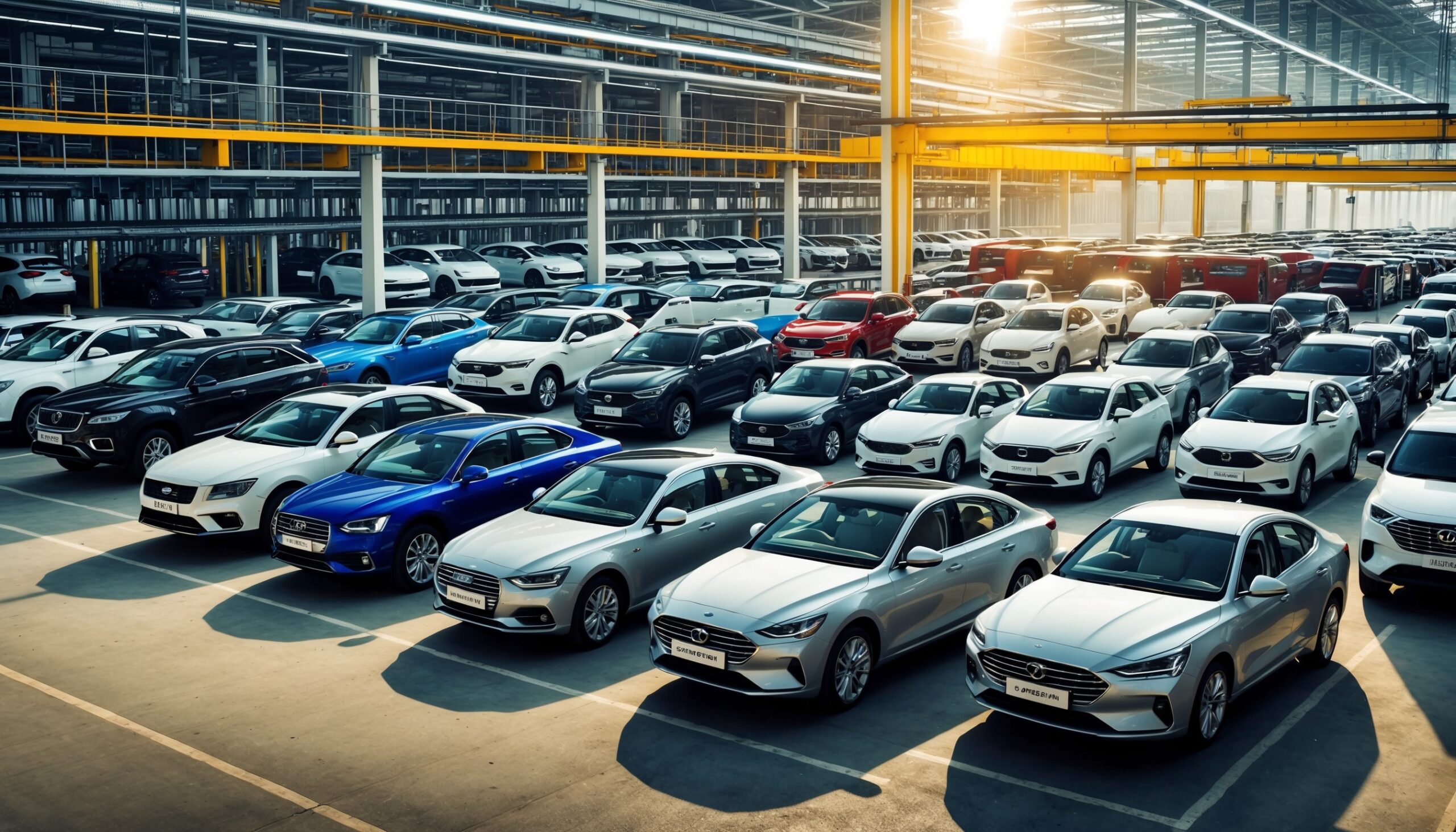These Car Brands Are Moving Production To India
In recent years, the automotive industry has seen significant shifts in production locations, with many car brands setting their sights on India. This trend is not just a fleeting moment; it reflects a broader strategy to tap into India’s burgeoning market, skilled workforce, and favorable economic conditions. So, what’s driving this change? Let’s dive into the details and explore which brands are making the leap and why.
The Allure of India for Car Manufacturers
India has emerged as a key player in the global automotive landscape, and it’s easy to see why. Here are a few compelling reasons that make India attractive for car manufacturers:
- Market Potential: With a population of over 1.4 billion, India represents one of the largest consumer markets in the world. As rising incomes and urbanization continue to grow, so does the demand for personal vehicles.
- Cost-Effective Labor: India boasts a vast pool of skilled labor, which is often more affordable than in Western countries. This helps manufacturers reduce production costs while maintaining quality.
- Government Initiatives: The Indian government has implemented various policies to promote manufacturing, such as the Production-Linked Incentive (PLI) scheme, which encourages companies to enhance their production capacities.
- Strategic Location: India’s geographical location offers easy access to other emerging markets in Asia and beyond, making it a strategic hub for exports.
Brands Making the Move
Now that we’ve established why India is becoming a hotspot for car manufacturing, let’s look at the key players making the move. Here are some notable brands that are shifting their production lines to India:
Tesla
Tesla, the electric vehicle (EV) giant, has been eyeing India for a while now. Although initial plans faced delays due to regulatory hurdles, recent developments suggest that Tesla is gearing up to set up a manufacturing facility in the country. The company aims to cater to the rapidly growing demand for electric vehicles in India while also using the country as an export hub for other markets.
Ford
Ford has made headlines with its recent decision to restructure its manufacturing operations in India. In a strategic shift, the American carmaker announced plans to discontinue the production of certain models while focusing on manufacturing electric vehicles. Ford aims to leverage India’s advantages in skilled labor and cost efficiency to enhance its EV lineup.
Volkswagen Group
The Volkswagen Group is another major player that has committed to expanding its footprint in India. The group plans to produce a range of electric vehicles tailored for the Indian market, capitalizing on the growing demand for sustainable transportation solutions. Their strategy includes localizing production to reduce costs and make EVs more accessible to Indian consumers.
Hyundai
Hyundai has long been invested in the Indian automotive market, and now it’s doubling down. The South Korean automaker is ramping up production capacity at its Chennai plant to meet rising demand. With a focus on electric mobility, Hyundai aims to introduce several EV models in India, further solidifying its presence in the burgeoning market.
The Impact on the Indian Automotive Landscape
The influx of these car brands is set to transform the Indian automotive landscape significantly. Here’s how:
- Job Creation: With new manufacturing plants comes the creation of thousands of jobs, both directly and indirectly. This could lead to a boost in the local economy and skill development in the automotive sector.
- Technological Advancements: As global brands set up shop in India, the transfer of technology and expertise is inevitable. This will enhance the local automotive industry’s competitiveness and innovation capabilities.
- Increased Competition: The entry of various brands will intensify competition, leading to better products and services for consumers. This could also drive down prices, making cars more affordable for the average Indian.

Challenges Ahead
Despite the numerous opportunities, moving production to India is not without challenges. Here are a few hurdles that car manufacturers may face:
Also Read: These Car Brands Are Moving Production To India
- Infrastructure Issues: While India is making strides in improving its infrastructure, challenges such as inadequate transportation networks and supply chain disruptions can still pose significant hurdles for manufacturers.
- Regulatory Hurdles: Navigating India’s complex regulatory environment can be daunting for foreign companies. Ensuring compliance with local laws and regulations is crucial for success.
- Market Dynamics: Understanding the preferences and purchasing power of Indian consumers is essential. Brands must tailor their strategies to suit local tastes and demands.
Future Prospects
The future looks bright for car manufacturers in India. With the government’s push towards electric vehicles and sustainable mobility solutions, companies may find new avenues for growth. As global automotive trends shift, brands can leverage India’s capabilities to remain competitive in the evolving market landscape.
Electric Vehicles: The Next Frontier
As the world moves towards greener alternatives, electric vehicles are at the forefront of this transformation. India is no exception, with the government actively promoting EV adoption through incentives and subsidies. Car manufacturers moving production to India will need to align their strategies with this trend to capture the growing market.
Brands that invest in EV infrastructure, such as charging stations and battery technology, will have a significant advantage. Furthermore, collaborations with local startups and technology firms could enhance their capabilities in the EV sector.
Collaboration with Local Suppliers
To optimize production and reduce costs, car manufacturers must cultivate strong relationships with local suppliers. This collaboration will not only enhance supply chain efficiency but also support the growth of the domestic automotive ecosystem. By sourcing parts locally, manufacturers can improve their sustainability credentials while also benefiting from cost savings.
The Role of Consumers
As consumers, we play a pivotal role in shaping the automotive landscape. With increased choices available, our preferences will influence the strategies of car manufacturers. As we become more environmentally conscious, our demand for electric vehicles and sustainable practices will push brands to innovate and adapt.
Moreover, feedback from consumers can help manufacturers fine-tune their offerings to better suit the Indian market. Engaging with customers through social media and other platforms can foster a sense of community and loyalty, further driving brand success.
Also Read: Every Semi Truck Brand Owned By Daimler
Final Thoughts
With an exciting combination of market potential, skilled labor, and government support, India is becoming a manufacturing hub for car brands worldwide. The shift of production to India not only signifies a change in the automotive landscape but also reflects the growing importance of emerging markets in the global economy.
As we witness these developments, Torque Feed will continue to keep you informed about the latest trends and insights in the automotive world. Whether you’re a die-hard car enthusiast or simply curious about the future of transportation, there’s much to look forward to as these car brands take root in India.












